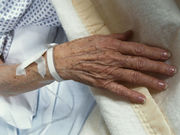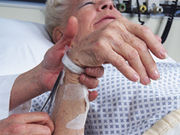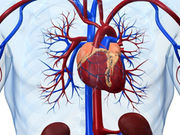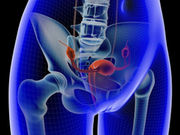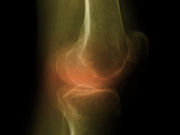Geriatrics
Home Geriatrics
End-of-Life Care Received Varies Based on Type of Disease
Cancer and dementia patients get more access to palliative care
Coprescribing Naloxone to Opioid Users Helps Reduce ER Visits
Finding supports naloxone prescriptions for patients taking opioids for chronic pain
Too Many Elderly, Terminal Patients Getting Unnecessary Tx
Doctors, caregivers must be able to better recognize when death is imminent and unavoidable
ALT Levels Within Normal Range Linked to Cardiovascular Events
Incident cardiovascular events were highest for those in the lowest tertile of baseline ALT
Vaginal Pessary Beneficial in Pelvic Organ Prolapse
Improvements in prolapse symptoms and quality of life with pessary added to pelvic floor exercises
Autologous Adipose-Derived Stromal Cells May Ease Knee OA
Single intra-articular injection of autologous adipose-derived stromal cells can improve pain, mobility
Health Care Workers’ Gloves Strong Source of Contamination
Clear evidence that gloves of health care workers contaminate hospital surfaces with bacteria
Patients Face High Hospital Bills Despite Having Insurance
Average out-of-pocket fee for privately insured adults topped $1,000 in 2013
Mortality Up With No Revascularization in NSTEMI
Risk associated with no revascularization consistent in subgroup analysis, including older age
Catheter Reduction Programs Do Reduce Use of Catheters
Centers without reduction programs have higher use of catheters overall, for inappropriate indications







